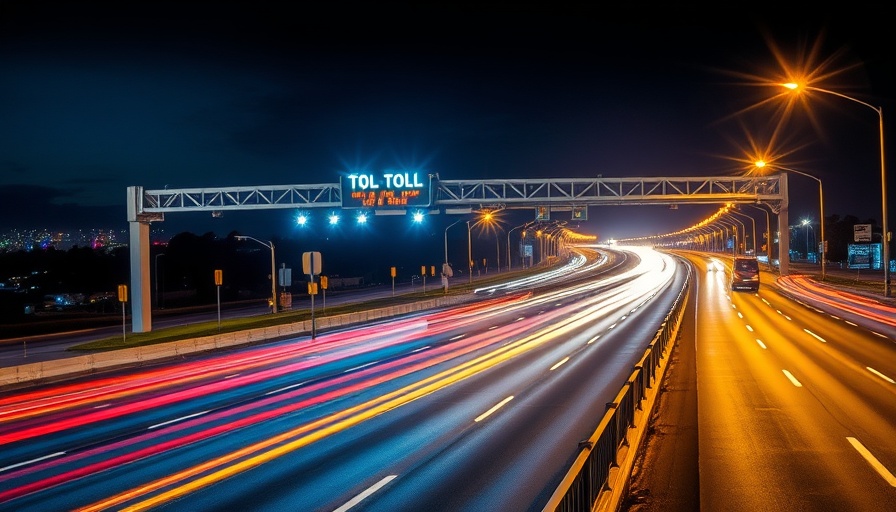
The Ongoing Burden of E-Toll Debt in Gauteng
As South Africa grapples with the complexities of its economic landscape, one lingering issue continues to dominate discussions: the e-toll debt. Gauteng's MEC of Finance and Economic Development, Lebogang Maile, has recently announced another payment towards this historical debt, amounting to R5.4 billion, which reveals much about the province’s fiscal responsibility and the public's reaction to government policies.
Understanding the Historical Context of E-Toll Payments
The e-toll system, introduced in 2013, faced an uphill battle from the onset. Public opposition surged over the tolling system’s perceived ineffectiveness and its financial burden on ordinary citizens. Following widespread protests and calls for reform, the provincial government decided to scrap the e-toll system, marking a significant shift in public policy. Nevertheless, the historical debt tied to this initiative remains a pressing concern, with the government obligated to service a total of R20 billion. As noted by Maile, only a fraction of this is directed towards actual debt repayment, with a notable portion allocated for road maintenance.
Insights into Policy and Economic Impact
In a landscape where economic recovery is paramount, the focus on repaying the e-toll debt brings to light broader issues within South African politics. The allocation of resources towards servicing this debt rather than investing in critical sectors such as health care, education reforms, and public infrastructure raises eyebrows. In an era when the COVID-19 pandemic has exacerbated economic disparities and heightened unemployment rates, some argue that prioritizing e-toll debt over essential services could jeopardize recovery efforts.
A Critical Examination of Public Funds Usage
The decision to use taxpayer money for the e-toll debt poses a critical question regarding fiscal accountability. With over R2 billion being channeled towards SANRAL’s Gauteng Freeway Improvement Projects, many citizens wonder if the funds allocated could have been better spent on pressing issues such as the Eskom crisis or infrastructure development. This concern reflects a broader skepticism towards government policies and their alignment with public needs.
Public Sentiment and Government Accountability
The public's concern over e-toll debt payment is not merely about financial figures; it represents a wider sentiment of frustration towards government accountability. The Democratic Alliance (DA) and other political entities have capitalized on this sentiment, warning against mismanagement of public funds and advocating for reforms that prioritize citizen welfare. The implications of these dynamics are significant, as political parties gear up for upcoming national elections and the associated struggles over influence and power.
Conclusion: A Call for Transparent Governance
The ongoing e-toll debt situation in Gauteng epitomizes not only a financial challenge but also a rallying point for citizens demanding accountability and improved governance. As professionals and active participants in socio-political discourse, it is essential to examine how these public funds are managed and to advocate for policies that genuinely work to alleviate the systemic issues faced by South Africans. In this complex political environment, transparency and responsible governance are not just idealistic aspirations; they are vital for a just and equitable society.
 Add Row
Add Row  Add
Add 




Write A Comment